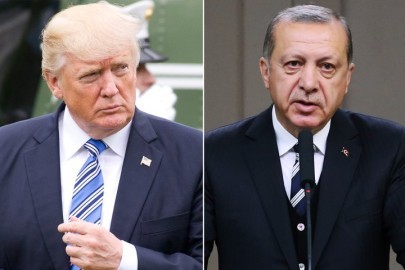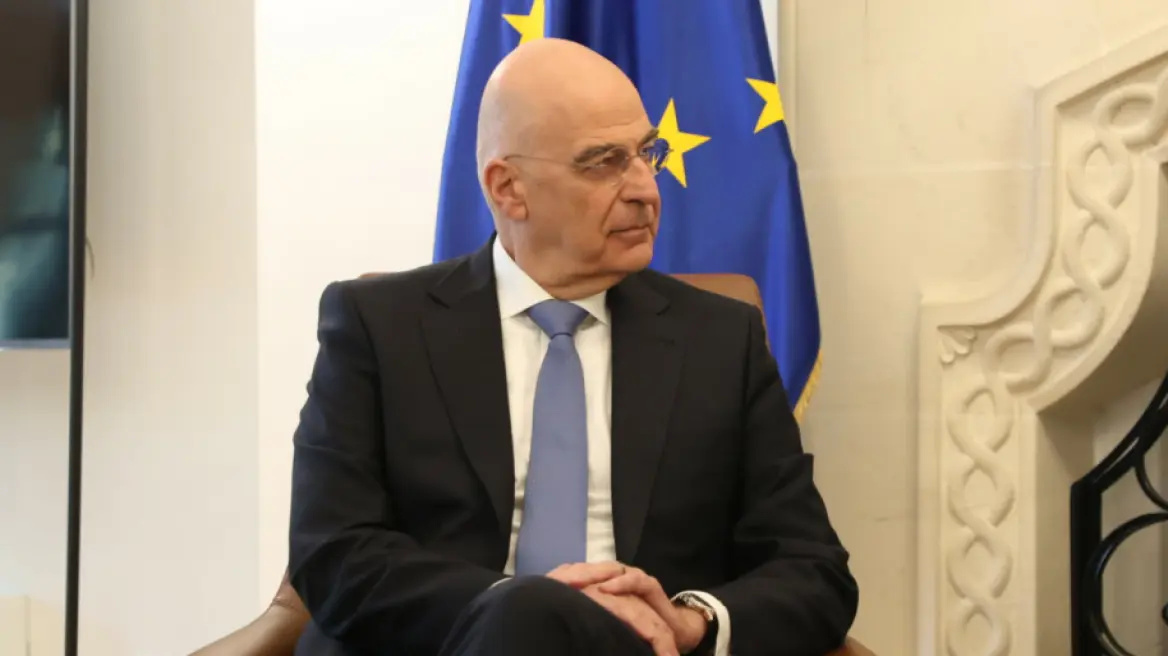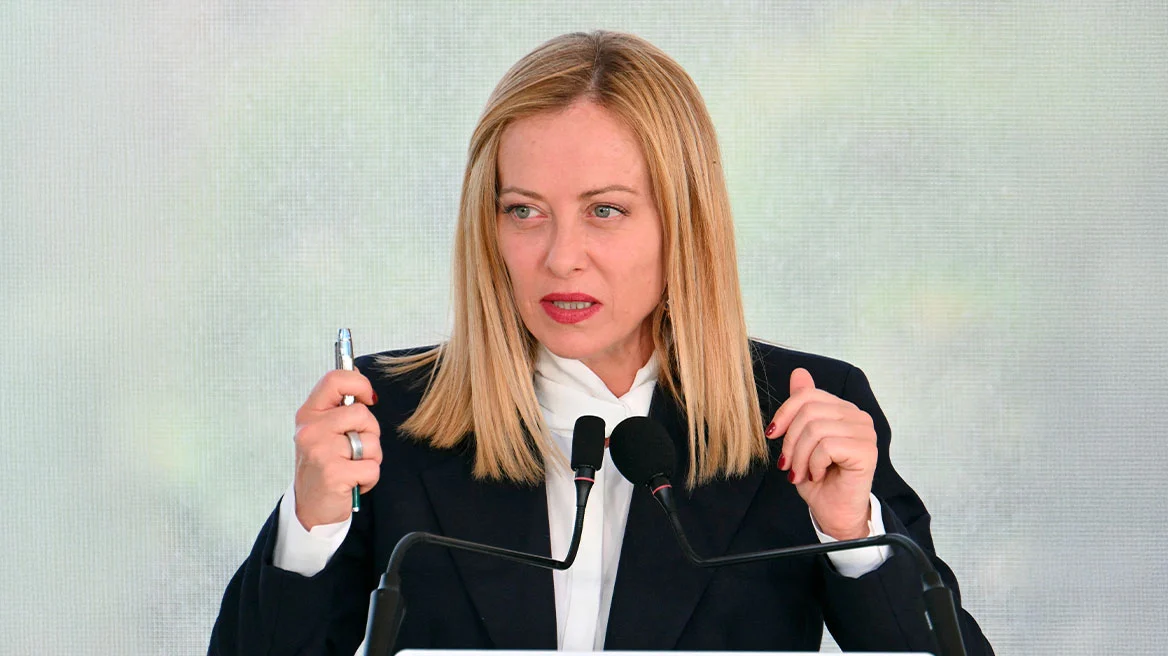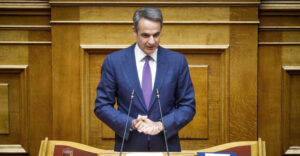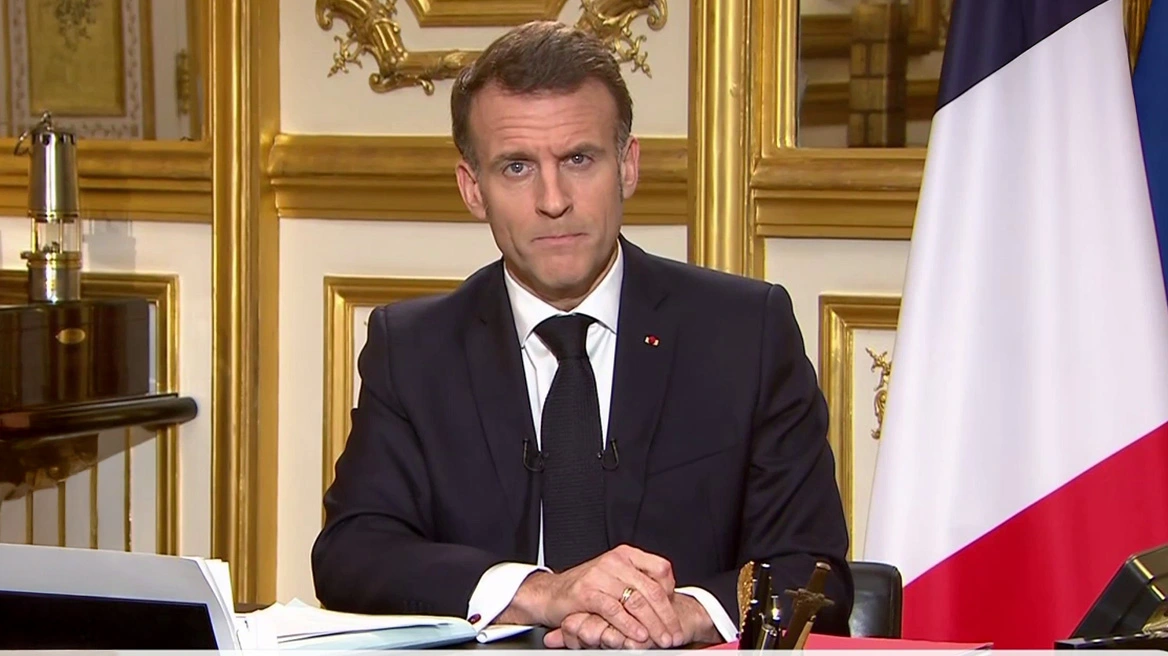President Donald Trump sought Tuesday to repair relations with Turkish President Recep Tayyip Erdogan, who is alarmed about a U.S. plan to arm Kurdish fighters in Syria.
Trump said he and the Turkish president would have a “long and hard discussion” as he welcomed Erdogan to the Oval Office for a meeting three days ahead of a Trump trip to the Middle East. Erdogan said the U.S. shouldn’t work with the YPG Kurdish militia, a group Turkey considers a terrorist organization, that Trump plans to arm.
“Taking them into consideration in the region will never be accepted and it is going to be against the global agreement that we have reached,” Erdogan said in a statement to reporters, through a translator.
Trump has worked since his election to improve relations with Erdogan that grew tense by the end of Barack Obama’s administration. Some of the people who shaped Trump’s presidential campaign also have worked on the Turkish president’s pet causes. A firm owned by Trump’s former national security adviser, Michael Flynn, received more than $500,000 during the election campaign, initially undisclosed, for work intended to discredit an Erdogan political rival.
But the U.S. campaign to drive Islamic State from its self-proclaimed capital of Raqqa in Syria put Trump in a strategic bind. His administration concluded the best hope short of inserting U.S. troops would be to arm Kurdish fighters, and the president decided that was worth the inevitable blowback from Turkey, the official said.
“We face a new enemy in the fight against terrorism and again we seek to face that fight together,” Trump said in a statement after the leaders met briefly in the Oval Office.
U.S. Gesture
One administration official described Erdogan’s White House visit as a gift that offers the Turkish leader a gesture of international legitimacy a month after a disputed referendum that granted him broader powers. Critics say Erdogan won the vote by violating international standards for free and fair elections.
Constitutional amendments narrowly approved in the referendum made Erdogan’s position, once mostly ceremonial, into the center of power in the Turkish government. Erdogan accelerated efforts to assert full control over state institutions after a failed July 2016 military coup against him. In the months that followed, nearly 150,000 soldiers, judges, academics, journalists and others were detained or lost their jobs in a crackdown on suspected coup supporters.
Despite international criticism of the referendum, Trump called Erdogan afterward to congratulate him on his victory.
For Erdogan, the White House visit just ahead of Trump’s first foreign trip as president will be a chance to test the theory that a one-on-one meeting with Trump can sway his thinking on foreign policy relationships. Trump’s summit with Chinese President Xi Jinping last month appeared to yield greater cooperation between the countries toward curbing North Korea’s nuclear ambitions.
In his own statement, Erdogan congratulated Trump on his election victory and said through a translator that the U.S.-Turkey relationship was based on “democratic values and common interests.”
Incirlik Base
Turkey has leverage of its own, not least being the importance of its Incirlik air base, which hosts about 1,500 U.S. troops and is used for air strikes against the Islamic State by the U.S. and its allies. The U.S. also has used Incirlik to supply military missions in Iraq and Afghanistan.
“My guess is the Turks looked at what President Xi said to Trump about North Korea and it kind of moved the president in one direction and he said, ’Oh yeah, it’s more complicated than I thought,’” said Steven A. Cook, an expert on Turkish politics with the Council on Foreign Relations.
Turkey has long worked against any moves that strengthen Kurds in Iraq or Syria because of fears of inciting Kurdish separatists within Turkey. The Turkish government considers the YPG Kurdish militia in Syria that the U.S. plans to arm to be a terrorist group. And it argues weapons provided to the YPG could ultimately make their way the PKK Kurdish separatist group inside Turkey to be used for terrorist attacks there.
“There’s no place for terrorist organizations in the future of our region,” Erdogan said.
Dissident Preacher
Erdogan is also seeking the extradition of Fethullah Gulen, a Turkish preacher exiled in Pennsylvania, whom Erdogan considers a terrorist. Turkey didn’t succeed at extradition under the Obama administration and the Trump administration official involved in preparations for Erdogan’s visit said he knew of no U.S. plans to extradite Gulen now.
Gulen publish an opinion article in the Washington Post Monday evening calling on Trump to pressure Erdogan to reverse “the democratic regression in Turkey.”
“The Turkey that I once knew as a hope-inspiring country on its way to consolidating its democracy and a moderate form of secularism has become the dominion of a president who is doing everything he can to amass power and subjugate dissent,” Gulen wrote. “The West must help Turkey return to a democratic path.”
Erdogan also wants the U.S. Justice Department to drop a case against Reza Zarrab, a Turkish businessman arrested in the U.S. last year and accused of working to violate Iran sanctions.
Zarrab’s prosecution had been brought by Preet Bharara, the former U.S. attorney for the Southern District of New York, who was fired in March along with other U.S. attorneys named under President Barrack Obama. Zarrab’s defense team includes former New York Mayor Rudy Giuliani, a close ally of Trump.
Ask me anything
Explore related questions
